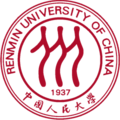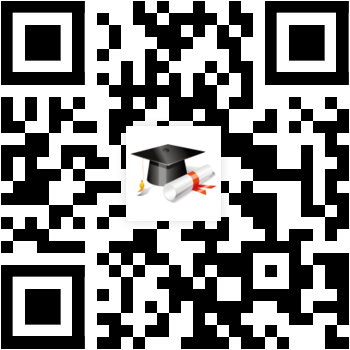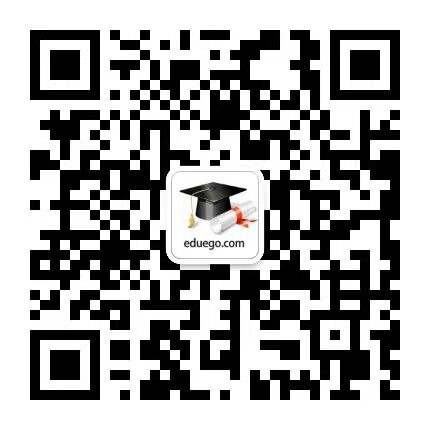一月在职联考冲刺复习英语阅读理解及答案解析2
来源:在职研究生招生信息网 发布时间:2016-11-11 10:20:05
The U.S. may so far have enjoyed good luck in escaping a direct SARS hit,but officials aren’t leaving anything to chance.The best hope for averting a SARS epidemic at home will be to keep SARS out at the nation’s borders. Federal immigration laws authorize immigration authorities to exclude non-citizens who are determined to have a“communicable disease of public health significance”.Immigration law also authorizes the President by proclamation to suspend the entry of any group of aliens whose entry he deems to be detrimental to the interests of the United States.This little-used power could be deployed to exclude all aliens from affected areas,a policy Taiwan has recently implemented.
Under the Public Health Service Act,any individual (citizens included)may be quarantined at an international port of entry if they are reasonably believed to be carrying a designated communicable disease.As of an April 4 Executive Order by President Bush,SARS is now a designated disease.
Thus,in tandem with airline screening,federal health authorities are carefully monitoring travelers from affected areas in Asia for SARS symptoms.With an estimated 25,000 individuals entering the country legally from Asia on a daily basis,that is a tall order. A single SARS- infected person getting through the net could bring down the border strategy.
The U.S. government might also front end the border strategy through restrictions on travel by American citizens to affected areas.In a series of Cold War era decisions,the Supreme Court upheld international travel restrictions for national security reasons,and one can imagine the same rationale applying to a public health emergency.How practical it would be to prohibit—and police—a travel ban to countries such as China is another question.
The initial SARS defense,then,hinges on effective border control.But U.S. borders are far from under control.There are an estimated 8~9 million undocumented aliens now in the United States,a figure growing by as many as 500,000 per year.Asia is the largest contributor to undocumented immigration outside the western hemisphere,funneling illegal aliens into the United States through elaborate smuggling networks.SARS could just as easily make serious inroads into the U.S. through this backdoor rather than the front.
1.From the first three paragraphs, we learn that .
A. American officials dont see any chance of escaping an immediate SARS hit
B. non citizens with a disease will be quarantined at the international airport
C. foreigners with a communicable disease may legally be denied entry into the U.S.
D. immigration officers are empowered to keep aliens out of the U.S.
2.Which of the following statements is true according to the text?
A. The President rarely declares a rejection of non citizens from infected areas.
B. The U.S. is the only lucky country to have kept safe from a SARS attack.
C. The interests of the U.S. are given more legal protection than public health.
D. The Public Health Service Act has been brought into effect since April 4.
3.The phrase“a tall order”most probably means .
A. an ambitious plan B. a difficult task
C. a careful arrangement D. an illegal decision
4.The author would probably agree that .
A. a SARS hit could be escaped by means of strict monitoring of international travel
B. undocumented immigrants poses a serious threat to national security of U.S.
C. illegal aliens come into the U.S. with the help of complicated smuggling networks
D. American border strategy may fail to attain its goal of avoiding a SARS epidemic
5.The passage is primarily concerned with .
A. the threat of SARS to the national security of U.S.
B. the U.S. border strategy against SARS
C. the problems in U.S. national security
D. the crisis of a public health emergency
译文:
迄今为止,美国非常幸运,没有遭到“非典”的直接袭击,但官员们也没有掉以轻心,在美国国内预防“非典”流行的最佳策略是拒之于国境之外。
按照联邦移民法,移民署有权拒绝让那些患有“危及美国公众健康的传染性疾病”的外国人进入美国;移民法也赋予美国总统权力,对有损美国利益的外国团体实施禁入,这种难得使用的权力可用来阻止来自于病灾区的外国人,台湾人最近这么做了。
根据公共卫生法,只要被确信患有特定的传染性疾病,任何人(包括公民)均可在国际入港处被隔离。4月4日,总统布什签署行政命令,“非典”属于特定疾病。
因此,与航空部门的检查相一致,联邦卫生部门正仔细审查来自亚洲重灾区的游客。据估计,每天自亚洲合法进入美国的人员达25,000,以上这一点将很难做到。只要一名“非典”患者进入,边境策略便全线崩溃。
美国政府可能限定美国公民前往病灾区,从而加强边境策略。在冷战时期的许多决策中,出于国家安全利益,最高法院曾支持实施国际旅行限定措施,可以想象,同样原则也适用于公共健康紧急事件。当然,怎样禁止和监控去像中国这样的国家旅行则是另一回事。
因此,开始阶段预防“非典”取决于边境控制,而美国边境远没有得到控制。估计,美国有8至9百万的未注册的外国人,而且每年增加500,000。亚洲是西半球外最大的非法移民来源地,他们通过复杂的走私网络进入美国。“非典”完全可能借此后门而非前门侵入美国。
1.【答案】C
【解析】这是一道细节题。根据第二段首句可知,“患有传染性疾病的外国人,移民局可不让其入境”,所以C项应为正确答案。由于文章强调“传染性”是拒绝入境的前提条件,故B项“病人要隔离”过于夸大。
2.【答案】A
【解析】这是一道是非判断题。根据第二段末句可知,移民法赋予总统的这种权利其实很少使用(This little used power),所以A项为正确答案。
3.【答案】B
【解析】这是一道词义题。根据第四段内容可知,由于每天合法进入美国的亚洲人实在太多,要想将“非典”拒于国门之外恐非易事,故B为正确答案。
4.【答案】D
【解析】这是一道推论题,问作者会赞同下面哪种说法。综合后三段的末句,可知作者对美国的拒“非典”于国门之外的边境战略,不一定能实现,所以答案为D项。A与文章所含之意相反;文章也未说所有的非法移民均通过复杂的走私网络来美国,故C不对;B项过于夸大。
5.【答案】B
【解析】这是一道主旨题。文章首段先点出了美国人的拒“非典”于国门之外的策略,随后诸段主要说这一点很难做到,故文章主旨标题应为B项。A项不足以概括全文,排除。
如果大家想要了解更多有关在职研究生专业信息,可以查看在职研究生招生简章,或是通过关注中国在职研究生网微信“eduego_zzyjs”了解详情。





















